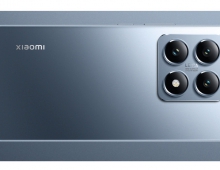
Smartphone Makers Seek for Thermal Management Solutions for Upcoming 5G Models
The upcoming 5G smartphones are will draw much more power than existing 4G models, apparently requiring better cooling modules to dissipate heat.
The first 5G chips will consume more power of current 4G chips, pusing smartphone vendors to equip their first 5G phiones with larger batteries. This obviously means that the cooling requirements of the new phones will be also increased.
Digitimes.com reports that Huawei, Xiaomi, Oppo, Vivo, Samsung Electronics and LG Electronics reportedly have approached related suppliers for sampling of new thermal management solutions for their 5G devices.
Huawei has said that it plans to release commercial 5G solutions and 5G chips in March 2019 and then 5G-enabled smartphones in June. Additionally, Huawei's sub-brand Honor product line is also scheduled to launch its first 5G model with total solutions in 2019.
While Huawei will use its own Kirin processors for its 5G models, Lenovo and Xiaomi both will utilize Qualcomm's 5G chips for their next-generation smartphones. Lenovo, Xiaomi and Oppo all aim to become the first-wave of 5G smartphone suppliers.
Huawei is said to use metal heat spreaders for its 5G phones, while Samsung, Oppo, Vivo and Xiaomi, are rumored to utilize heat pipes.
In line with 5G roadmaps of these Android handset makers, a number of Taiwan-based cooling module companies, including Auras Technology, Chaun-Choung Technology (CCI) and Taisol Electronics, have reportedly landed thermal solution orders, or have begun delivering related new samples to clients.
Huawei will reportedly use premium copper cooling modules from Auras Technology.
Auras has said it plans to expand its production capacity for heat spreaders and will also shift its previous production lines for server heat spreaders to roll out more models for smartphone applications.
Taisol also plans to raise new funds from a capital expansion project in order to finance its plans to ramp up its heat pipe production capacity to five million units a month in the first quarter of 2019 from 2.55 million units currently.





















